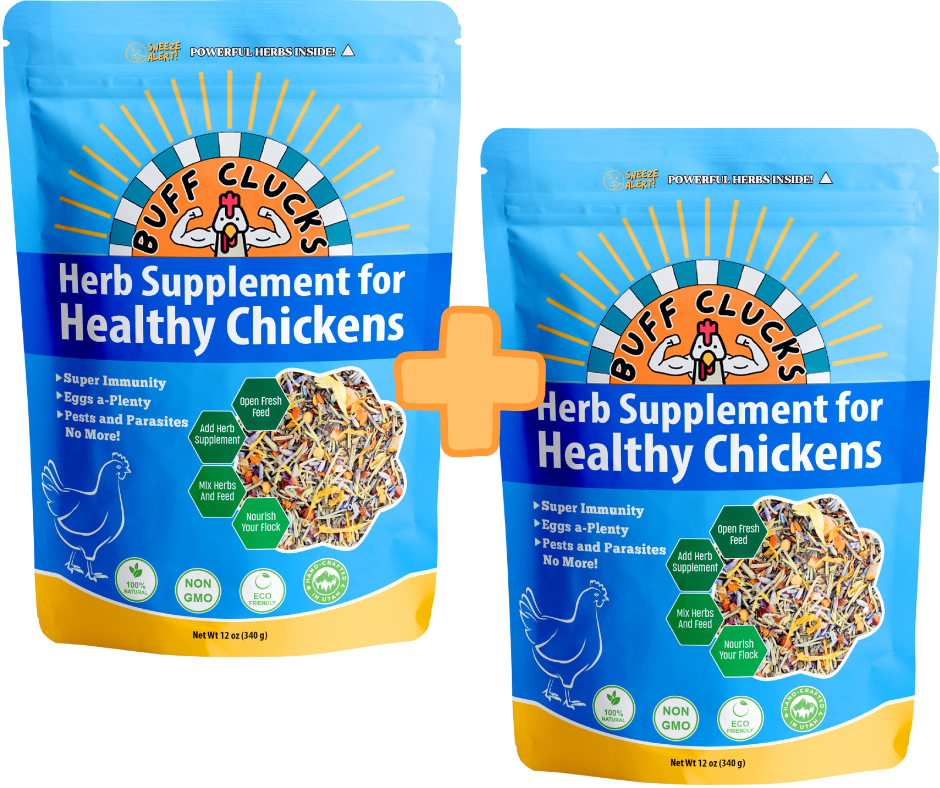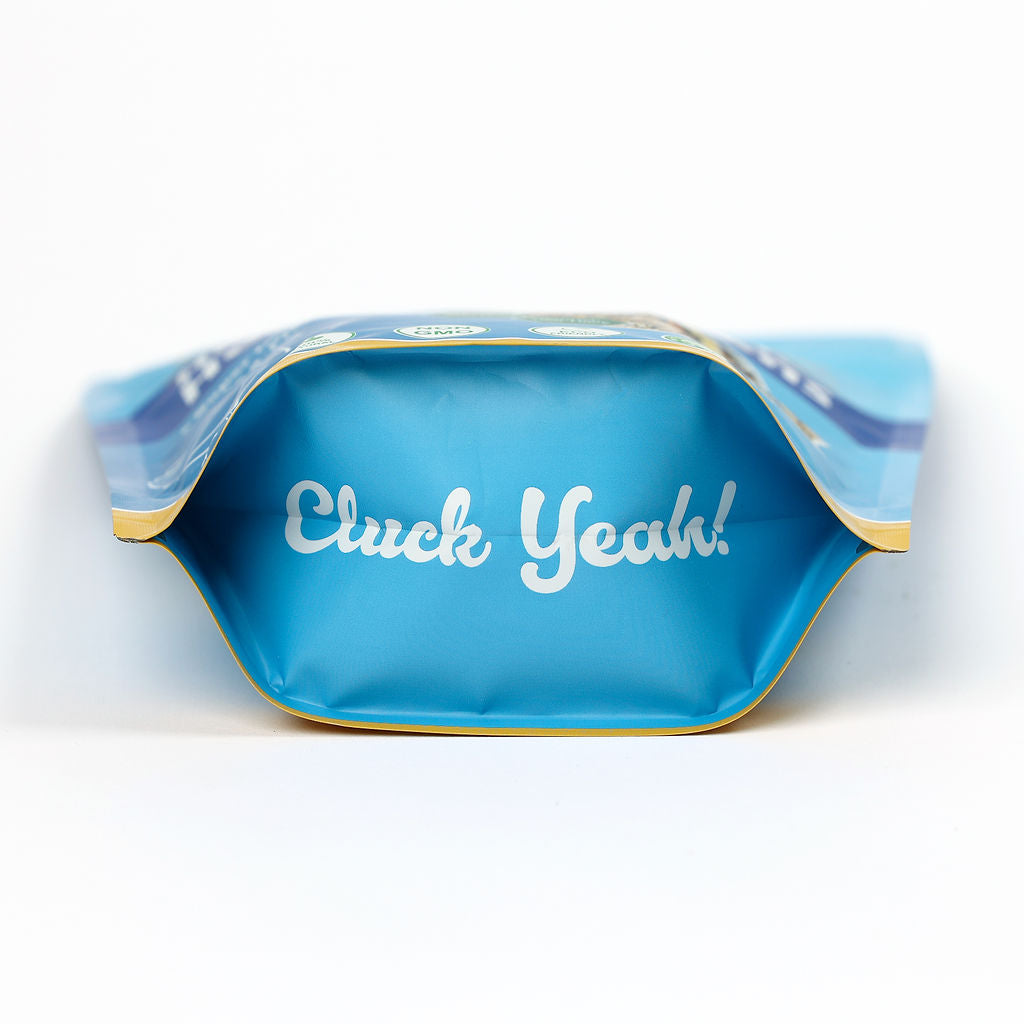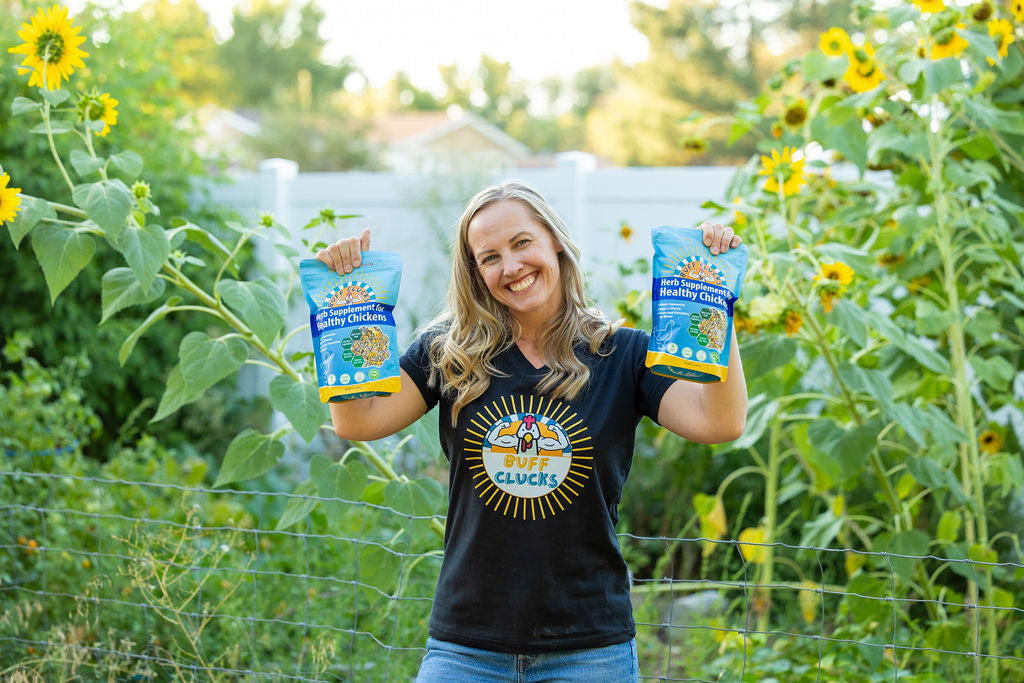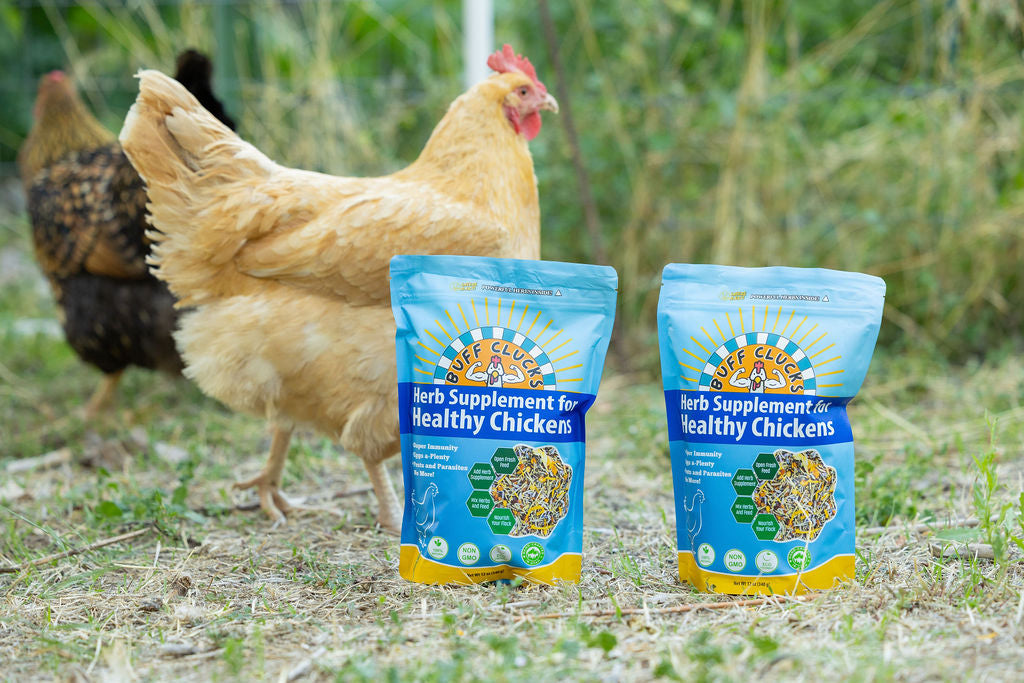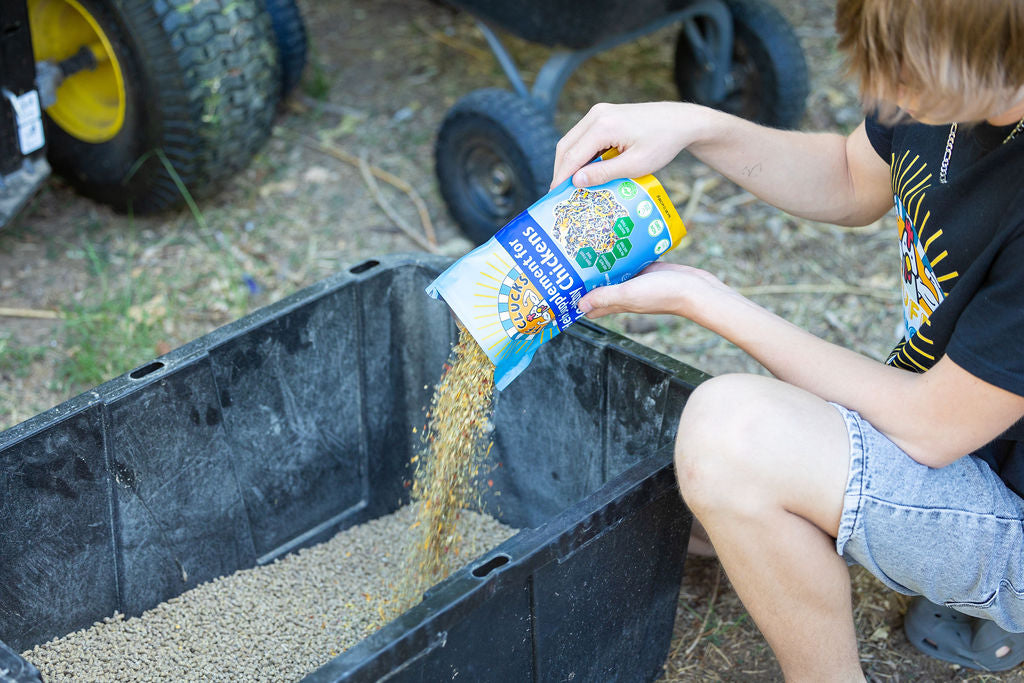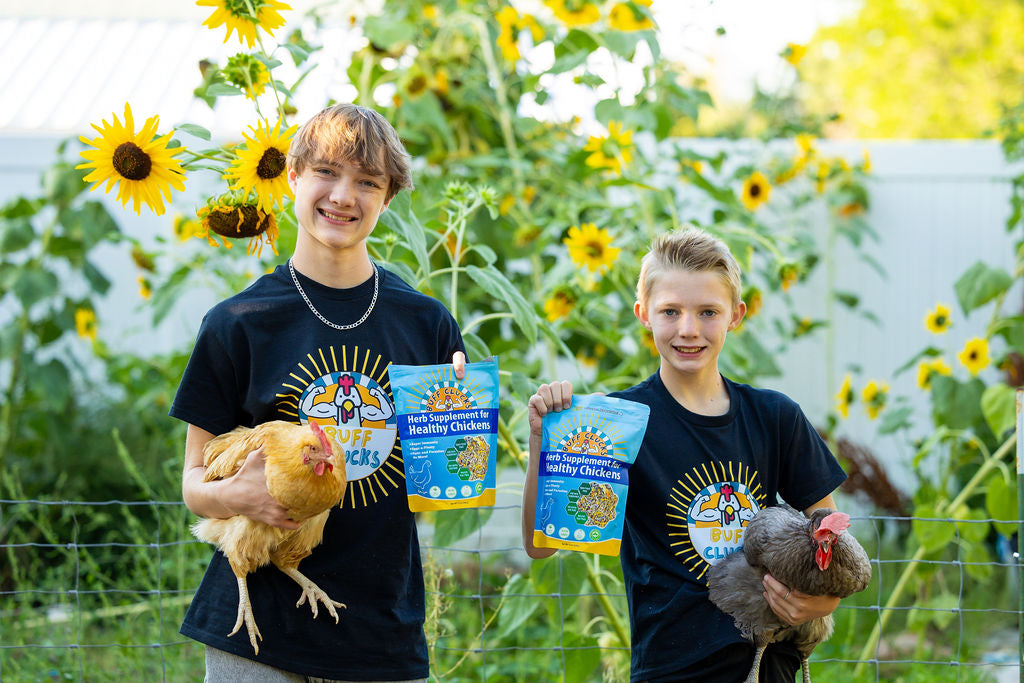
How to Prevent Frostbite in Chickens
Share
Winter is coming, and while you might be dreaming of snowball fights and hot cocoa, your chickens are more like, "Hard pass." Cold weather isn’t just an icy inconvenience for your flock—it can lead to frostbite, and trust us, that's no fun. But before you start flapping in panic, we’ve got some tips to keep your chickens warm, healthy, and frostbite-free all winter long. Time to hatch a plan for winter survival, let’s go into these tips and get your chickens cozy in no time!
What is Frostbite in Chickens?
Before we get into prevention, let’s get crackin’ on what frostbite actually is. Frostbite occurs when your chicken’s exposed skin gets too cold, freezing the tissues. This usually affects their combs, wattles, and toes—ouch! It can cause swelling, blisters, discoloration, and even tissue death if left untreated.
What Does Frostbite in Chickens Look Like?
- Early Stage — You’ll notice pale or whitish spots on your chicken's combs, wattles, or toes. These areas will feel cold and hard to the touch.
- Blistering Stage — If the frostbite worsens, you might see blisters forming. These can be filled with fluid, which is your chicken’s way of trying to heal itself. At this point, you’ll need to take action quickly to prevent further damage.
- Advanced Stage — In severe cases, the frostbitten areas will turn black, which indicates tissue death. This is irreversible, and in extreme cases, it may lead to the affected areas falling off.
Cold, wet conditions are prime frostbite culprits, especially when temperatures drop below freezing. But don’t worry! frostbite is preventable with a few smart moves (and no, a tiny chicken-sized sweater isn’t one of them).

Avoid Open Waterers to Reduce the Risk of Frostbite
Open waterers can lead to wet feathers and feet, creating a recipe for frostbite. When chickens drink from open bowls, like heated dog bowls, they’re likely to get their heads and feet wet, increasing the risk of frostbite in cold weather. Instead, opt for an electric nipple waterer. This type of waterer gives your flock easy access to fresh water without the risk of splashing or soaking themselves, keeping them dry and frostbite-free.
To keep their water clean and healthy, use AquaBoost—Water Supplement for Backyard Chickens. Packed with apple cider vinegar to support digestion, oregano oil to boost immunity, and cinnamon oil for extra warmth, it’s the perfect winter boost for your flock. And, of course, ensure their water stays unfrozen throughout the night. Cold toes and frostbite? Not on your watch!
Shield Your Flock from Harsh Weather
When winter weather turns wild, your chickens need a cozy place to huddle. Reducing their exposure to harsh winds, snow, and rain is essential for preventing frostbite. Start by covering the enclosure with a weatherproof covering to shield them from the elements. You can also set up a wind block around the enclosure, especially on the sides that face the brunt of the wind.
Lastly, make sure there are plenty of perches in sunny, protected spots within the enclosure so your chickens can bask in the sun while staying safe from the cold. Keeping your coop sheltered and draft-free ensures your flock won’t be left out in the cold!
Ensure Proper Ventilation
While you’re busy blocking drafts, don’t forget the importance of good ventilation. Stuffy, humid air in your coop can actually make frostbite more likely. Keep that air flowing! Proper ventilation helps reduce moisture buildup, which can turn your coop from a warm haven into a chilly frostbite factory.

Keep Bedding Dry
Wet bedding is a frostbite magnet! Regularly change the bedding in your coop to ensure it stays dry and cozy for your chickens. A layer of straw or wood shavings not only keeps things comfy but also insulates their feet from the cold ground.
For extra dryness, try CoopShield—Diatomaceous Earth and Herbs for Chickens! It helps absorb moisture, reduce odors, and create a comfy environment for your flock. Plus, it’s loaded with herbs like lemongrass and cinnamon to keep things pest free, smelling fresh, and feeling dry.
Provide Plenty of Roosting Space
When it comes to staying cozy, your chickens know what’s up! Roosting is their go-to strategy for keeping warm through chilly nights. Make sure they have plenty of space to snuggle up without feeling squished. Elevated perches are a must, too. Not only do they love being off the ground, but keeping their toes away from the cold helps prevent that dreaded frostbite.
Use a Safe Heat Source
While it’s tempting to crank up the heat in your coop, be careful with heat lamps, they can be serious fire hazards. Instead, use a safe, energy-efficient heat source specifically designed for chicken coops. Remember, chickens are surprisingly resilient and can tolerate the cold as long as they’re dry and well-ventilated.
Apply Salve to Sensitive Areas
Your chickens’ combs, wattles, and toes are most vulnerable to frostbite. Applying a protective salve, like petroleum jelly, to these areas can lock out moisture and keep frostbite at bay. Think of it like slathering on some cozy mittens for your birds!

Prevent Cold Stress to Avoid Frostbite in Chickens
Cold stress happens when chickens are exposed to prolonged cold without adequate shelter or nutrition. It can cause their bodies to use up more energy just to stay warm, leading to a weakened immune system. Signs of cold stress include lethargy, decreased egg production, and puffed-up feathers. If left unchecked, cold stress can make chickens more susceptible to illnesses and frostbite.
The trick is keeping them warm without stressing them out. Red pepper flakes can help boost healthy circulation in your chickens. Consider adding our Herb Supplement for Backyard Chickens to their diet. Packed with powerful ingredients like red pepper flakes for circulation health, and oregano for immunity support, it helps your chickens stay healthy and resilient all winter long.
Winterizing Your Coop for Happy Hens
Your chickens are all set to strut through winter like pros! With these simple yet effective frostbite-prevention tips in your back pocket, you can keep your flock warm, comfy, and frostbite-free all season long. No need to worry about them feeling chilly or uncomfortable!
So, while you’re cozying up with a steaming mug of hot cocoa and daydreaming about snowflakes dancing outside your window, you can rest easy knowing your chickens are nestled comfortably in their coop. They’ll be snug and happy, enjoying the winter months without a care in the world.

